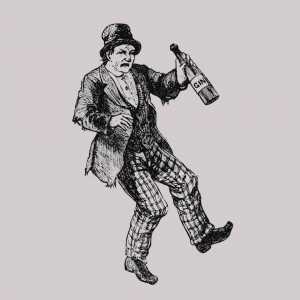The below was first written for a project funded by the American Library Association, for a pilot project using reading as a way to address issues of addiction. For more on the project, see here; for more information on bibliotherapy, see here.
 Addiction is, among many other things, bewildering and isolating. It’s an enormous and complex phenomenon that can take over every facet of a life, simultaneously outside the sufferer’s control and controlling him or her from within. It undermines the freedom of will and the autonomy of thought, both as concepts and in practice; and it turns relationships with other people into reflections or components of the addictive process (as the saying goes, addicts don’t have relationships, they take hostages). Part of what makes addiction so difficult to process, in short, is that it actively interferes with the relationships and faculties of mind that we rely on to process experience in the first place.
Addiction is, among many other things, bewildering and isolating. It’s an enormous and complex phenomenon that can take over every facet of a life, simultaneously outside the sufferer’s control and controlling him or her from within. It undermines the freedom of will and the autonomy of thought, both as concepts and in practice; and it turns relationships with other people into reflections or components of the addictive process (as the saying goes, addicts don’t have relationships, they take hostages). Part of what makes addiction so difficult to process, in short, is that it actively interferes with the relationships and faculties of mind that we rely on to process experience in the first place.
The Reading for Recovery (R4R) project offers an elegantly simple solution. We believe that reading and reflecting on written work about addiction, both fiction and nonfiction, can help people in recovery to come to terms with their experience, to better understand what can seem like an inscrutable compulsion. Further, narrative can help rebuild social connections: connections with the characters in a story and connections with fellow participants in the reading group. We’re particularly excited about this latter twist, which shifts European-style one-on-one bibliotherapy towards the “book club” model familiar to public libraries. This innovation makes bibliotherapy available to more people and––just as important––makes them available to one another to share experiences, insights, and support.
Generally speaking, when selecting reading material we’ve erred on the side of inclusion. Memoirs significantly dealing with addiction are a sizable sub-genre unto themselves, and provide a rich resource for the project. Modern classics like Mary Karr’s Lit and Caroline Knapp’s Drinking: A Love Story are on the list, but we also include older works like Jack London’s John Barleycorn and Thomas de Quincey’s Confessions of an English Opium Eater. (The jury is out on whether to count James Frey’s notorious A Million Little Pieces in this genre; we’d hate to get on Oprah’s bad side!)
We also bring in works of fiction that reflect significantly on addiction. For instance, Malcolm Lowry’s modernist opus Under the Volcano traces the last days of a British consul in Mexico under the lucid despair of mezcal, and Leslie Marmon Silko’s Ceremony explores alcoholism and spirituality on a Native reservation. Finally, we’ve gone out on a limb and included open-ended works that could be read as allegories of addiction: for example, Robert Louis Stevenson’s Strange Case of Dr. Jekyll and Mr. Hyde offers a powerful figure for the ‘double life’ many addicts lead and the loss of control they feel over the person they become under the influence. Some stories end in recovery and redemption, and some don’t: the cathartic power of tragedy has been recognized since Aristotle, and an honest, bleak reflection of the hopelessness embedded in the logic of addiction can paradoxically be just what someone in recovery needs in order to keep going. Our role is to collect and curate stories that might ring true for survivors of addiction, that can help them explore through a text and recognize in themselves the powerful feelings and complex damage that it leaves behind.
 The ultimate interpretation of texts is left up to participants, and we believe that this is key to the program’s strength. We provide sample questions as tools for facilitators to get the conversation started: groups can speculate on why characters act the way they do, what’s at stake in pivotal moments, and why writers choose to describe and narrate in particular styles. The answers are up for discussion, and the discussion itself is the site of healing: puzzling over a book together allows connections with other people, both in the text and around the table, that can help participants recognize and make sense of their own experiences. In R4R, literary reflections of addiction become occasions to reflect on addiction. That’s the central gambit of the program, and we’re excited and grateful for the opportunity to put it into practice.
The ultimate interpretation of texts is left up to participants, and we believe that this is key to the program’s strength. We provide sample questions as tools for facilitators to get the conversation started: groups can speculate on why characters act the way they do, what’s at stake in pivotal moments, and why writers choose to describe and narrate in particular styles. The answers are up for discussion, and the discussion itself is the site of healing: puzzling over a book together allows connections with other people, both in the text and around the table, that can help participants recognize and make sense of their own experiences. In R4R, literary reflections of addiction become occasions to reflect on addiction. That’s the central gambit of the program, and we’re excited and grateful for the opportunity to put it into practice.
—-Originally published in the March 2016 issue of the Information Services News, Rutgers Center of Alcohol Studies
See also post What is bibliotherapy?